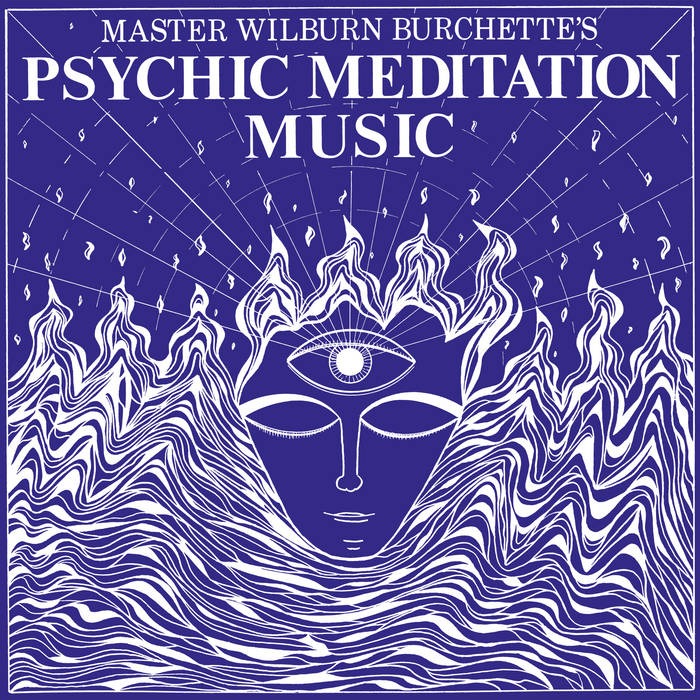Change Your Reflection Experience With the Right Meditation Music Choices
The choice of songs can greatly impact the meditation experience. Different styles and designs serve different functions, influencing relaxation and focus. Ambient sounds might produce harmony, while nature sounds can stimulate a sense of link. Recognizing how to choose the appropriate music is vital for improving mindfulness practices. What specific components should one take into consideration when curating a reflection playlist? The answers might transform just how one methods their meditative trip.
The Science Behind Music and Reflection
Several people take pleasure in the calming results of songs throughout reflection, the underlying science discloses a much deeper link between audio and psychological wellness. Research shows that songs can considerably impact mind task, promoting relaxation and reducing tension. When individuals listen to calming melodies, their bodies create reduced levels of cortisol, the tension hormone, which assists in a state of serenity important for meditation.Moreover, research studies reveal that certain frequencies and rhythms can boost emphasis and psychological law. The brain reacts to acoustic wave, turning on neural pathways connected with leisure and mindfulness. This interaction can result in enhanced alpha and theta brainwave activity, states frequently linked to deeper meditation experiences.Additionally, music can act as a support, aiding experts in keeping their focus and visibility throughout reflection sessions. Comprehending the science behind songs and meditation highlights its potential to improve mental quality and emotional security, making it a beneficial device for practitioners.
Selecting the Right Style for Your Technique
How does one pick the most suitable genre of songs for reflection practice? The choice of style greatly impacts the overall meditation experience. Each genre stimulates different psychological reactions, affecting leisure and focus. Ambient music, defined by its soft, ethereal noises, often develops a peaceful ambience helpful to deep reflection. Likewise, nature noises, such as moving water or birdsong, can enhance link to the environment and advertise mindfulness.Conversely, classical songs, particularly pieces with sluggish tempos, can facilitate a calming yet structured meditation session. The usage of instrumental music, lacking verses, lessens diversions, enabling experts to submerse totally in their ideas. Inevitably, the ideal category depends on individual preferences and the specific objectives of the reflection practice. Testing with various designs can help individuals discover what reverberates best, promoting an extra improving meditation experience.
Producing a Personalized Reflection Playlist
Crafting a tailored reflection playlist can improve the reflection experience by lining up the selected music with private preferences and objectives. To develop an effective playlist, one need to initially recognize the desired mood or purpose for each session, whether it's relaxation, focus, or psychological recovery. Selecting tracks that resonate with these purposes can amplify the impact of the reflection practice.Next, it is useful to check out numerous styles, such as ambient, classical, or crucial, while also thinking about the pace and rhythm of each item. A well balanced mix of brand-new and acquainted sounds may keep the experience fresh and appealing. In addition, the size of the playlist should match the duration of the meditation session, enabling a smooth circulation without interruptions. On a regular basis updating the playlist can also assist keep inspiration and ideas, inevitably resulting in a much more satisfying meditation journey.
The Function of Nature Seems in Enhancing Leisure
Nature appears play a substantial duty in boosting leisure throughout reflection, as they can stimulate a sense of calmness and connection to the all-natural globe. The mild rustling of fallen leaves, the calming noise of streaming water, or the far-off calls of birds can deliver the mind far from everyday stressors, fostering a relaxing psychological area. Research shows that these natural noises cause a physiological response, decreasing heart prices and minimizing anxiety levels.Incorporating nature appears right into reflection techniques can aid secure the meditator's focus, promoting a much deeper state of mindfulness. As these sounds are usually acquainted and soothing, they develop a background that encourages the release of stress. Whether via taped tracks or the all-natural atmosphere, integrating these acoustic aspects can significantly enhance the general meditation experience. Eventually, nature sounds function as a powerful device for those looking for to achieve a better sense of peace and relaxation during their method.

Live Music and Guided Procedure: An One-of-a-kind Approach
Including real-time music right into meditation techniques presents a transformative and vibrant component that improves the experience past static nature noises. Live musicians can develop an one-of-a-kind ambience, permitting individuals to get in touch with the here and now moment with spontaneous tunes and rhythms. This interaction cultivates a deeper psychological reaction, aiding individuals immerse themselves fully in the reflection process.Guided sessions that integrate online music commonly feature a facilitator that blends verbal signs with musical accompaniment, improving emphasis and leisure. The online facet enables a liquid experience, adapting to the team's energy and needs in real-time. This flexibility can bring about heightened states of awareness and deeper states of relaxation.Moreover, real-time music can cultivate a sense of area among individuals, as shared experiences commonly enhance the reflective trip. Ultimately, this one-of-a-kind approach improves reflection, transforming it right into a multi-sensory and engaging experience.
Tips for Staying Mindful While Listening to Music
Just how can one truly improve their mindfulness while paying attention to songs? To cultivate a conscious experience, people need to first choose music that resonates with their reflection objectives, going with calming or important pieces. Producing a dedicated area without disturbances is vital; this enables the audience to immerse themselves fully in the auditory experience. Focusing on the feelings generated by the music-- such as rhythm, tune, and consistency-- can deepen mindfulness.Practicing deep breathing while listening urges people to attach with the music on a profound degree. It is also advantageous to keep an open awareness, recognizing thoughts and sensations that arise without judgment. By consciously returning focus to the songs whenever the mind wanders, one can strengthen the method of mindfulness. Eventually, integrating these suggestions can transform the act of paying attention right into a rich, meditative experience that enhances overall health.
Often Asked Concerns
How Does Reflection Music Affect My Mind Waves?

Can I Make Use Of Popular Songs for Meditation?
Using preferred tunes for reflection can vary in performance. While some people might find familiar melodies calming, others may be distracted by verses, potentially interrupting the introspective state sought during practice. Individual preference plays an important function.

What Is the Ideal Volume for Meditation Music?
The suitable quantity for meditation songs is typically soft, enabling for a mild history existence. This quantity cultivates relaxation without frustrating the mind, advertising much deeper focus more info and a peaceful ambience favorable to meditation practices.
How much time Should I Pay Attention to Songs During Meditation?
The duration for listening to songs throughout reflection differs. Typically, practitioners suggest 10 to thirty minutes, allowing enough time to focus and unwind (963 Hz Frequency). Eventually, specific preferences and meditation goals influence the optimal listening size
Is It Okay to Sing Along While Meditating?
The inquiry of vocal singing along during meditation is subjective. Some individuals find it boosts their practice, while others think it interrupts focus. Eventually, personal preference and the meditation design dictate whether vocal singing is suitable. Several people enjoy the comforting effects of songs during meditation, the underlying scientific research discloses a much deeper link between sound and mental well-being. Ambient music, identified by its soft, heavenly sounds, often creates a peaceful atmosphere conducive to deep meditation. Nature noises, such as flowing water or birdsong, can improve link to the environment and promote mindfulness.Conversely, timeless music, specifically pieces with sluggish paces, can help with a relaxing yet structured meditation session. Crafting a customized reflection playlist can enhance the reflection experience by straightening the chosen music with private choices and objectives. Integrating live music into reflection techniques introduces a dynamic and transformative component that enhances the experience beyond static nature audios.